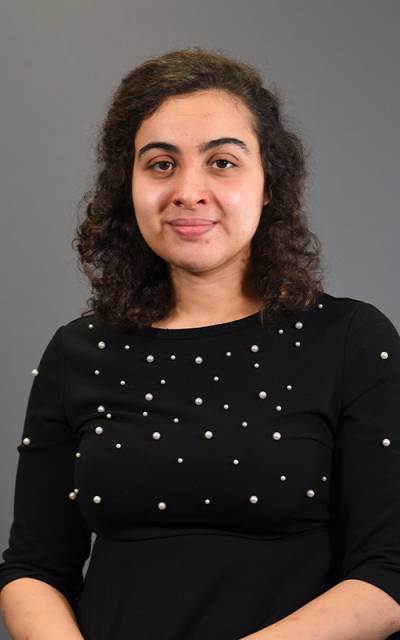Asma is a Research Fellow at the Centre for Education Policy and Equalising Opportunities (CEPEO). Her research focus is on education and labour economics.
What attracted you to take up your position at IOE, UCL's Faculty of Education and Society?
When I was a PhD student at the Paris School of Economics, Professor Alex Bryson came to visit my department and we had very exciting exchanges on education policies in France and the UK. It struck me that my experience and research agenda was a perfect fit with IOE's strategic mission, which is to enhance the scientific understanding of education and transform the findings from this into practical applications for schools and policy-makers.
What is the focus of your research and what benefits do you hope your discoveries or insights will bring?
My current research agenda focuses on the issue of teacher shortage and its consequences for educational inequalities, as they are mostly concentrated in disadvantaged areas. Because of these shortages, disadvantaged pupils are more likely to face higher-class size, lower quality teachers and lower quality of instruction than other pupils are.
It builds on the following key findings from my PhD thesis:
- teacher quality is one of the main determinants of student achievement, especially in disadvantaged areas. It is one of the most important and under-used policy levers to reduce educational inequalities.
- More innovative teacher retention policies are urgently needed to tackle the alarming teacher shortage in many developed countries, such as the UK or France. These retention policies can be monetary, but also non-monetary, such as career-path incentives.
My plan is to push my research agenda a step further and to shed new light on the issue of teacher shortage. I provide an in-depth analysis, using large-scale administrative data, on the determinants of teacher shortage but also on the impact of the latest teacher retention policies, both in the UK and France.
“ I am strongly interested in the broad research agenda addressing inequalities and social justice: in economics, but also in sociology, history, law, psychology, etc. I deeply believe that one must adopt a holistic and interdisciplinary approach to these issues in order to be able to make any significant progress and design public policies that have structural and long-lasting effects."
What working achievement or initiative are you most proud of?
I am most proud of my work when it reaches policy-makers and the public. For example, one of my PhD thesis papers is dedicated to the impact of teacher absence and supply teachers on student achievement, using large-scale administrative data. The main results of this paper are twofold: teacher absence was found to negatively impact students, and that even the best supply teachers are unable to mitigate the totality of this negative impact.
This work has major implications for public policies related to teacher health and working conditions, as they are important determinants of teacher absences. The findings were featured in The Guardian and, in France, it drew the attention of the highest French administrative court of audit (Cour des comptes) who asked me to write an extension of this paper (published in French), focusing on the inequalities in teacher absences and supply teachers between disadvantaged and advantaged schools in France.
What's the most important thing you've learned from your students about the subject you teach?
I teach Introduction to Economics to first-year undergraduate students. Many of them have never studied economics: they provide me with refreshing insights into economics, and I am often impressed by how they manage to link the basic theory they learn to real empirical economic problems.
What do you most enjoy about your position and why?
I am very grateful to be part of such a vibrant research community – it offers me the ideal environment to develop my skills and expertise. My ultimate goal is to be a top academic and influence the policy debate: with this position, I am able to work with top academics and to contribute to IOE's academic excellence and policy influence through mutually beneficial interactions.
How has being in London or at UCL been of benefit to you?
Being London-based and being part of the UCL community offers endless opportunities. London and UCL are top research hubs, including in my fields, labour, and education economics. The numerous workshops, seminars and networking events make it very easy to interact with colleagues from UCL and beyond.
What would it surprise people to know about you?
I am a martial arts enthusiast, and particularly kickboxing: it requires a large dose of energy, focus, and resilience – just like research in a way!
 Close
Close


